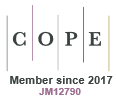Diets of the re-introduced greater bilby (Macrotis lagotis) and burrowing bettong (Bettongia lesueur) in the Arid Recovery Reserve, Northern South Australia.
J. Bice and K. Moseby
Australian Mammalogy
30(1) 1 - 12
Published: 2008
Abstract
The diets of re-introduced populations of the greater bilby (Macrotis lagotis) and burrowing bettong (Bettongia lesueur) were compared in arid South Australia. Scats were collected during five sampling periods over 15 months and dietary items were usually identified to species or genus level using macro and micro-histological techniques. Both species consumed a wide variety of food items but M. lagotis exhibited a greater use of invertebrate material and B. lesueur consumed more roots and perennial vegetation. Both species consumed a variety of seeds. There was high seasonal variation in the diets of both species and they appeared to be opportunistic dietary generalists, a condition beneficial for survival in the unpredictable arid zone climate. Although both species consumed items from the same broad dietary categories there was little dietary overlap of specific food items. Where overlap existed it was either temporally separated or comprised less than 19% of the total dietary volume suggesting a degree of resource partitioning between the two species. Whilst M. lagotis appears to have adapted to arid conditions by moving to follow ephemeral growth, B. lesueur is more sedentary and relies more on perennial vegetation. Within re-introduced confined populations where species movement is limited, M. lagotis may be more susceptible to population decline when conditions are dry, whereas B. lesueur may cause significant damage to perennial vegetation before experiencing population decline.https://doi.org/10.1071/AM08001
© Australian Mammal Society 2008


